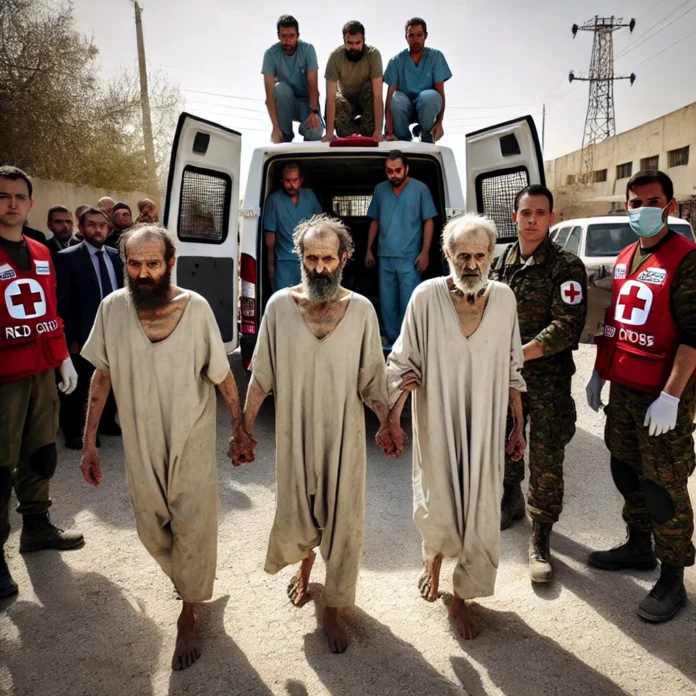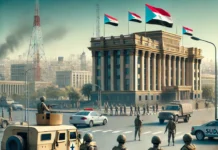In a significant development under the ongoing ceasefire, three Israeli hostages were released by Hamas on February 8, 2025, in exchange for 183 Palestinian prisoners freed by Israel. The Israeli hostages—Eli Sharabi, Ohad Ben Ami, and Or Levy—appeared frail after 491 days in captivity, sparking outrage and concern in Israel. This exchange marks the fifth since the ceasefire began on January 19, 2025, totaling 21 hostages released in return for over 700 Palestinian prisoners.
What Happened?
On February 8, 2025, Hamas released three Israeli hostages as part of a prisoner exchange agreement facilitated by the International Committee of the Red Cross (ICRC). The hostages were handed over in a public ceremony, which Israel condemned as a “crime against humanity.” Following their release, the men were transported to Israel for medical evaluations. Concurrently, Israel released 183 Palestinian prisoners, continuing the pattern of exchanges established under the current ceasefire.
Why It’s Important
The frail condition of the released Israeli hostages has intensified public outrage and increased pressure on Prime Minister Benjamin Netanyahu to negotiate further releases. The ceasefire, initiated on January 19, 2025, aims to halt the 16-month Gaza war and includes provisions for hostage and prisoner exchanges. However, the health conditions of the released individuals highlight the severe hardships endured during captivity, raising concerns about the well-being of those still held.
What Experts Say
Israeli President Isaac Herzog condemned the treatment of the hostages, stating, “The mistreatment of our citizens is a crime against humanity.” The ICRC, which facilitated the exchange, urged that future operations be conducted privately and with dignity to protect the individuals involved. Human rights organizations have also expressed concern over the conditions of both Israeli hostages and Palestinian prisoners, calling for improved treatment and adherence to international humanitarian standards.
What’s Next?
Negotiations for the next phase of the ceasefire are ongoing, with Israeli negotiators returning to Qatar to discuss further terms. The potential extension of the ceasefire and additional exchanges are under consideration. However, political challenges persist, as some members of Netanyahu’s coalition government advocate for the resumption of military operations. The international community continues to monitor the situation closely, emphasizing the need for a sustainable resolution and the humane treatment of all individuals involved.
Conclusion
The recent exchange underscores the fragile nature of the current ceasefire and the complex humanitarian issues at play. As negotiations proceed, the international community remains vigilant, advocating for the humane treatment of all individuals and a lasting resolution to the conflict.





